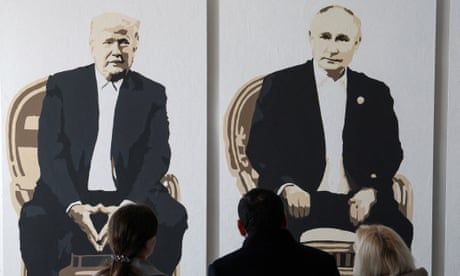
As the US and its European allies head to the Munich security conference, Europe must learn from its tragic history and oppose appeasement
Donald Trump’s appeasement of Vladimir Putin makes Neville Chamberlain look like a principled, courageous realist. At least Chamberlain was trying to prevent a major European war, whereas Trump is acting in the middle of one. Trump’s “Munich” (synonymous in English with the 1938 deal in which Britain and France sold out Czechoslovakia to Nazi Germany) comes on the eve of the big security conference in today’s Bavarian capital, where his emissaries will meet western allies. That Munich security conference must be the beginning of a decisive European response, learning from our own tragic history in order to avoid repeating it.
The next step Trump proposes is in effect a new “Yalta” (referring to the February 1945 US-Soviet-UK summit in the Crimean resort of Yalta, which has become synonymous with superpowers deciding the fate of European countries over their heads). In this case, his proposal is that the US and Russia should decide the fate of Ukraine with marginal if any involvement of Ukraine or other European countries. But this time the occupants of the White House and the Kremlin should meet first in Saudi Arabia, then in their respective capitals, while it seems the actual Yalta, in the Crimea, is to be ceded to Russia. For in the brave new world of Trump and Putin, might is right and territorial expansion is what great powers do, be it Russia to Ukraine, the US to Canada and Greenland – or China to Taiwan.
Timothy Garton Ash is a Guardian columnist
Continue reading...